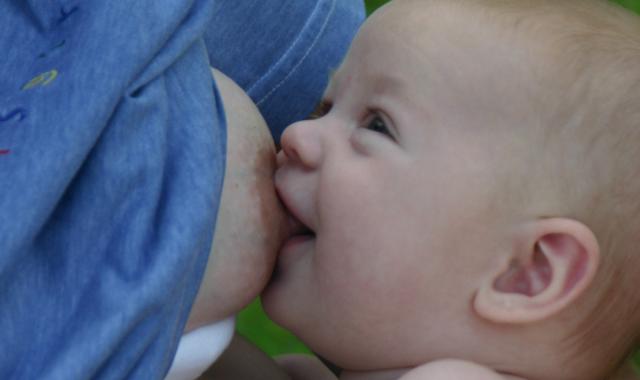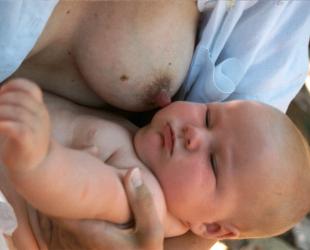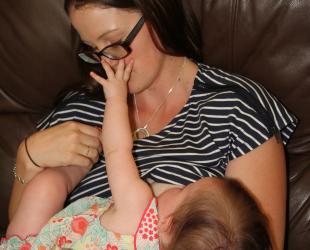Gentle tips to help you manage biting and keep breastfeeding a positive experience.

When your baby is breastfeeding, their tongue covers their bottom teeth and your nipple sits at the back of their mouth. This means they can’t bite while actively feeding.
Biting usually happens at the start or end of a feed, often because:
milk isn’t coming quickly enough
your baby wants your attention
your baby is finished and is playing at the breast
teething is making their gums sore
What to do if your baby bites
Biting can hurt and your first reaction might be loud. Some babies get scared, while others might find it funny and try again. Saying “No!” firmly and taking your baby off the breast straight away can help teach them not to bite. If your baby is upset by your reaction and refuses to feed, there are gentle ways to encourage them back to the breast.
If you notice a pattern, watch your baby closely and gently detach them before they bite.
Tips for specific situations
Teething babies may want to bite and chew on everything, including your nipple. Try these ideas:
- Offer something hard and cold to chew before a feed.
- Gently rub your baby’s gums with a soft cloth or wrapped ice cube before feeding.
- If your baby is in pain, ask your pharmacist or health care provider about pain relief.
Sometimes new teeth rest on your breast and cause discomfort. Holding your baby close, with their chin tucked in, and trying different feeding positions can help.
Some mums say their baby's saliva changes during teething and this irritates their nipples. If you feel this kind of soreness, try rinsing your nipple area after feeds with a little bicarbonate of soda dissolved in water (approximately 1 teaspoon to 1 cup). You could also bathe your breast in salty water.
Some babies bite when milk is slow to come. This might happen at the beginning of a feed or later in the feed when the milk flow has slowed. Expressing a little before feeding can help trigger your let-down reflex.
Towards the end of the feed, if sucking slows, remove your baby from the breast early. You could swap sides to encourage more milk.
If this happens more than once, you may feel tense worrying if your baby will bite this time. This may further affect your let-down. Consciously trying to relax can help.
If your baby is playing or seems distracted, break the suction and take them off the breast. Try feeding again later or move to a quieter spot.
Read more about distractible babies.
Older babies may bite to get your attention. Focusing on your baby while feeding can help you notice when they might bite.
Check your baby’s mouth before feeding, especially if they’re crawling or walking. Something in their mouth can lead to biting or nipple soreness.
Treating a sore nipple
If your baby bites and breaks the skin, treat it like a cracked nipple.
Smear some breastmilk on after feeding.
Let your nipple air dry.
Change damp breast pads or bras promptly.
If feeding is too painful, express milk and rest your nipple until you feel comfortable again. See your doctor if your nipple doesn’t heal or becomes inflamed.
© Australian Breastfeeding Association November 2025



